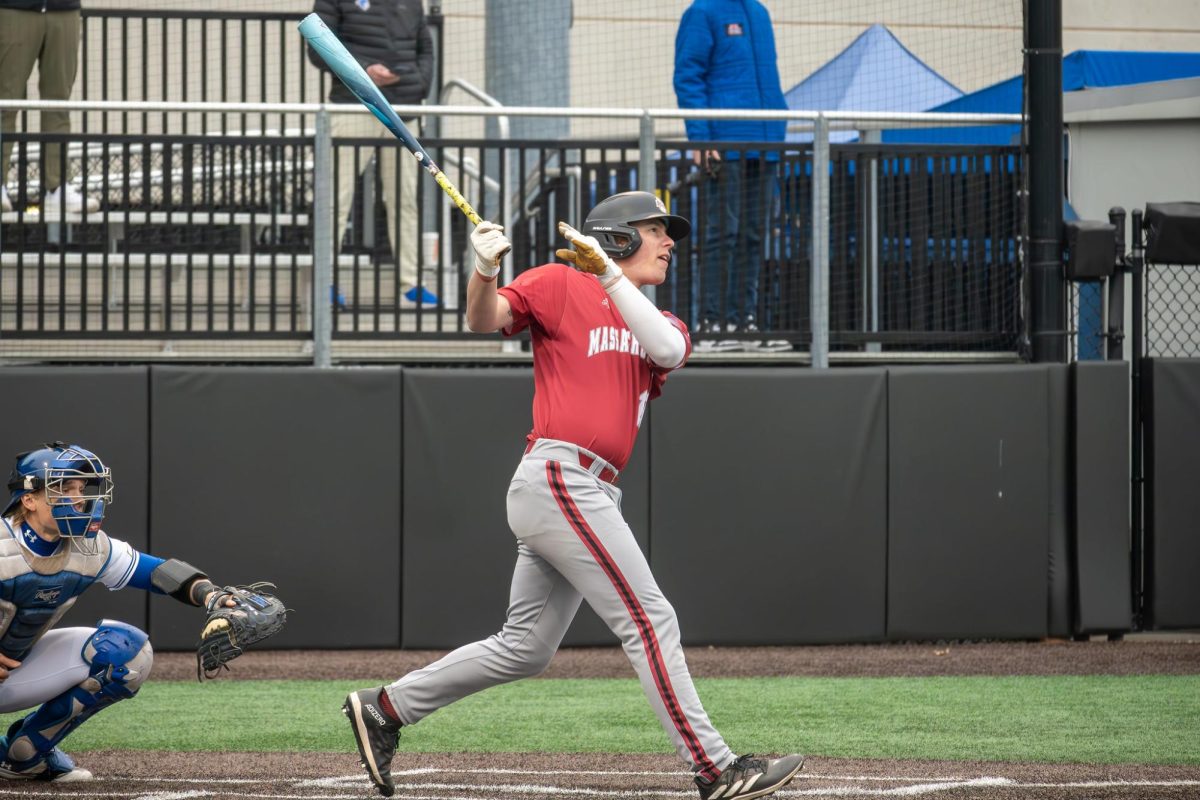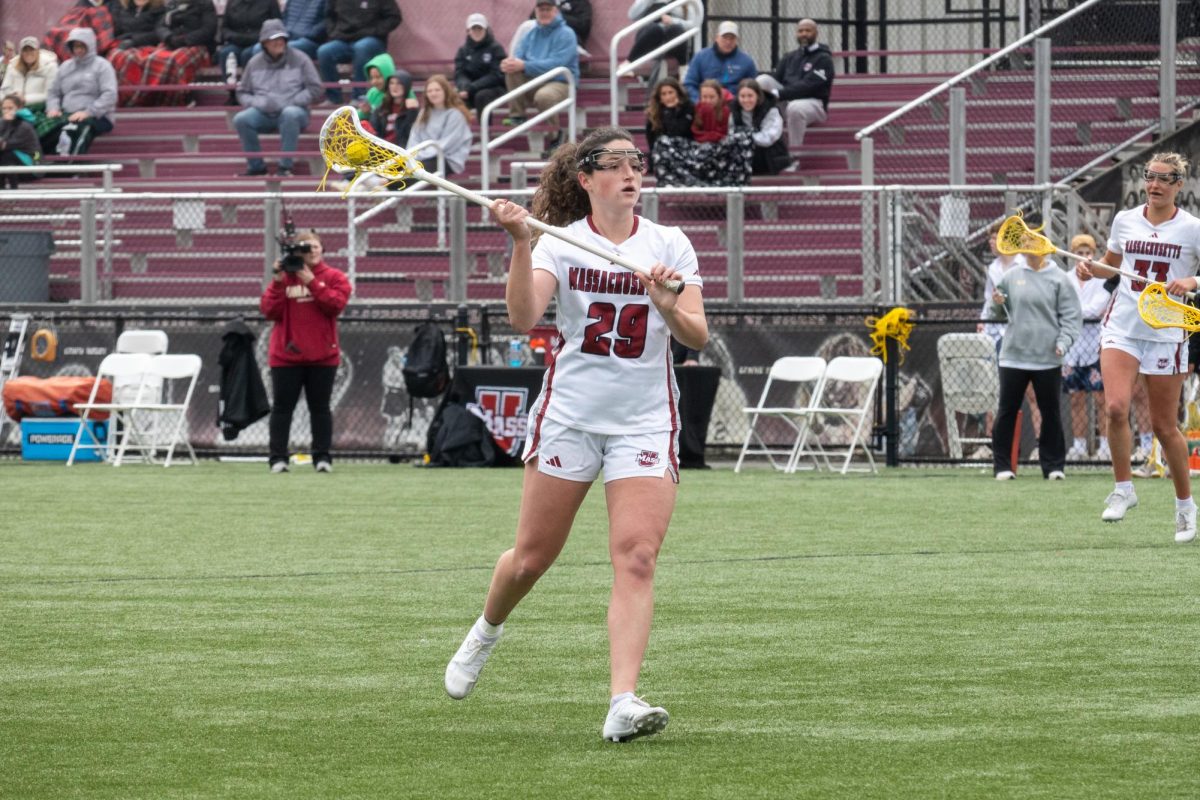After seeing a posting on an online job board, University of Massachusetts students Nora Cameron and Jonah Dratfield took on the positions of working at one of the University helplines this past summer. They quickly learned, however, there was more to the job than they had initially expected, with the position becoming strenuous and overwhelming within their first days.
The helpline, which has operated for the past 10 summers, ran for 11 weeks. Staffed by 12 students and run by an experienced graduate student, it acts as an extension of the Bursar and Financial Aid Office to help the office deal with overflow calls.
“The primary purpose of the helpline is to provide immediate, personal contact to students who call. The helpline operators also proactively reach out to first-generation students over the summer to answer questions they may have,” said Mary Dettloff, the deputy director of the Office of News and Media Relations at UMass in a written statement.
“The helpline is designed to receive a large number of calls. The University has more than 30,000 students,” Dettloff said. “This is a practical and effective way to provide front-line customer service during a period of peak inquiries, with the system designed to have student operators forward more complex calls to professional staff.”
Student workers argued, however, this wasn’t necessarily how the call center functioned. Of their ability to really help students, Dratfield, an English major with an individual concentration, explained that “There were rules that were very unclear about [the helpline] that were pretty important.”
Dratfield recalled instances where he wasn’t able to access certain information about callers, and instead putting callers on hold or on a call-back list. Overall, this slowed the helpline’s process.
Dratfield and Cameron both expressed that they felt their training hadn’t adequately prepared them for the true demands of the job. Of his experience, Dratfield noted that “We did have training for a week, and I was actually [in] for pre-training for a week, but there’s a lot of information to understand about how financial aid at the school works or how the Bursar’s bills work.”
“I didn’t really feel like we had a particularly solid grasp on that by the time we started working,” Dratfield added.
Cameron, a public health sciences major, furthered on the emotional aspects of the job, remembering that “on my very first day, the first call I got was someone whose husband had just passed away.” She had to explain to the distraught caller they would have to wait eight weeks for any change in their financial aid package. Cameron said this emotional pressure was “explained to us like robots.”
Cameron also recalled during training, their supervisor told workers to feel free to take breaks if the calls got too stressful, but in reality criticized workers when they went on their breaks.
“They presented it like that, but that was not the reality – they expected us to just move on to the next [call],” Cameron said.
The workers also claimed the call center imposed many expectations of efficiency. Cameron said they were told to record detailed notes of every call on a couple of different platforms, which was called clerical time. The time, they were told, was to be kept under 30 seconds, and their next call would come in right away. She said their bathroom breaks were also timed by supervisors in order to maximize the number of calls.
Dratfield said there was “this really big emphasis on customer service.”
“So, I think that the technicalities of the job were already difficult enough,” Dratfield explained. “It’s difficult to understand how the Bursar’s bill and financial aid works. But then we were being kind of…evaluated on how many calls a day we took, what the average length of our call was.”
“Combined with the difficulty of trying to get people the right info, people who were probably really stressed out, I think it was also pretty stressful to try and live up to the standards of whoever was actually in charge of the helpline,” he added.
Dratfield noted, however, that workers didn’t directly give feedback during the summer out of concern for keeping their jobs.
“Our supervisor asked our opinions various times but it didn’t really feel like the right space in which to criticize our supervisor,” he said. “I think it was a little unclear over who was actually at fault for the different things…I’m not really sure who we would have spoken to.”
The supervisor had people above to report to, and the financial aid office also set specific expectations, making it hard to pinpoint where the issues originated.
Dratfield and Cameron both mentioned they did submit feedback at the end of the summer anonymously.
“Neither the dean nor any of the associate deans were made aware of any concerns or perceived problems by the helpline workers this summer,” Dettloff commented. “A student who worked on the helpline sent an email about two weeks into the semester to the central administration to express her concerns about how the helpline was operated, and two members of the administration met with her to discuss her concerns.”
“I do think they should be able to make changes just in terms of basics, like of how the helpline functions and how they treat student workers. I think that’s a very easy, reasonable thing to ask of them to change,” Cameron said.
“I know that they can’t, in terms of FAFSA, UMass individually can’t change that, but at least in terms of working environment, that can hopefully be something that can be a quick fix. And then in general, I think they [can] totally work on how they re-route their funding to help students’ finances more…I think there’s definitely ways they can work at making this University more affordable and they just haven’t,” Cameron added.
Though there was no information as to what sort of steps will be taken in the future, Dettloff stated “Student worker feedback is always reviewed and discussed, especially for ways to make improvements. There are currently discussions underway among several administrators on improvements that we can consider to improve training and operations of the helpline.”
Editor’s note: Jonah Dratfield writes for the opinion section of The Daily Collegian. We felt his perspective on this issue was important to include. The last two paragraphs were added for clarification after its original publication.
To offset some of the difficulties of the call center, Dettloff explained that workers were “also trained to refer difficult or complex calls to professional staff in the bursar’s and financial aid offices either by transferring the call or taking the person’s contact details so a professional staff member can return their call to provide assistance.”
Cameron argued, however that this wasn’t always the case. She said that, while it was true that they were able to forward calls where the caller was especially forceful, they usually were expected to “not forward if [it was] something [they] can explain” – meaning that calls that were emotionally complex were something students had to deal with on their own.
Irina Costache can be reached at [email protected].




















